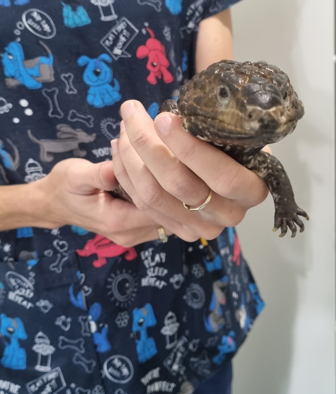General Animal Wellbeing in Trinity Beach
Behavioural Advice
Behavioural problems can be due to behavioural causes, medical causes, or both. Our veterinarians will investigate behavioural problems by obtaining a full history and conducting a full examination (sometimes your pet may require blood or urine tests to rule out underlying medical conditions) to accurately diagnose a problem. Behavioural problems are often the combined effect of many factors, including your pet’s environment and learning.
Genetics can also predispose your pet to some behaviours. However, the expression of those behaviours will depend on your pet’s early socialisation and training.
Changes in the environment may contribute to the emergence of behavioural problems. For example, changes in routine, a new member of the household (pet, baby or spouse), moving house, or the loss of a family member or pet can have a dramatic impact on behaviour. Any medical or degenerative changes associated with ageing may cause the pet to be even more sensitive to these environmental changes.
Learning also plays a part in many behavioural problems. Early training and socialisation are essential to have a happy, well-adjusted pet. Punishment of behavioural problems often worsens the situation, and it is very important that professional advice is obtained as soon as the problem appears to effectively resolve it. Positive reinforcement is the preferred method for changing behaviour; however, this also needs to be used carefully as it can encourage undesirable behaviour if used incorrectly.
Frequently Asked Questions
Nutritional Advice
Along with regular exercise and veterinary care, careful nutrition is the best way you can contribute to your pet's prolonged good health.
These are the basic nutrients every pet needs:
Water is the most essential nutrient in any diet. Your pet's body is made up of approximately 70% water and will quickly perish without it. Ensure your pet can access fresh, clean water at all times.
Carbohydrates supply energy and come from sugars, starch, and fibre from plant sources. Carbohydrates help energise the brain and muscles, making your pet bright and active.
Fats also supply energy and, in the right amounts, help build strong cells and promote nutrient absorption. Too much fat, however, can lead to obesity-related health problems, such as diabetes, heart disease and osteoarthritis.
Proteins are required for a healthy coat, skin, and nails. Your pet's body uses the amino acids in proteins to make enzymes and hormones in the bloodstream and to maintain a healthy immune system. Proteins can come from plant and meat sources, but cats and dogs need high-quality animal protein.
Vitamins and minerals help regulate many body systems. For example, your pet needs calcium and phosphorous for strong bones. Antioxidant vitamins like vitamins E and C help boost your pet's immune system during times of stress.
Puppy Pre-School
There are many benefits to teaching your puppy to be well behaved at an early age. Puppies are able to learn obedience skills, toileting behaviour and social boundaries. All of these things help make your relationship with your dog more rewarding for the years to come.
We provide an effective Puppy Pre-school program for all of the puppies that visit our clinic. With our progressive and positive learning techniques you will:
- Develop an understanding of normal puppy behaviour.
- Learn how to read your puppy's body language and respond appropriately.
- Develop effective techniques for positive behavioural development.
- Learn about nutrition, grooming, dental care, vaccination and parasite protocols and potential health problems and risks.
- Understand the need for socialising your puppy.
- Teach your puppy some important 'do not' lessons.
- Understand important boundaries when playing together.
- Develop strong bonds between you and your puppy.
We are lucky to be joined by a dog trainer from Cairns Dog School.
Please contact the clinic on 07 4057 6033 for more details, class dates and times or enrolment for your puppy.










